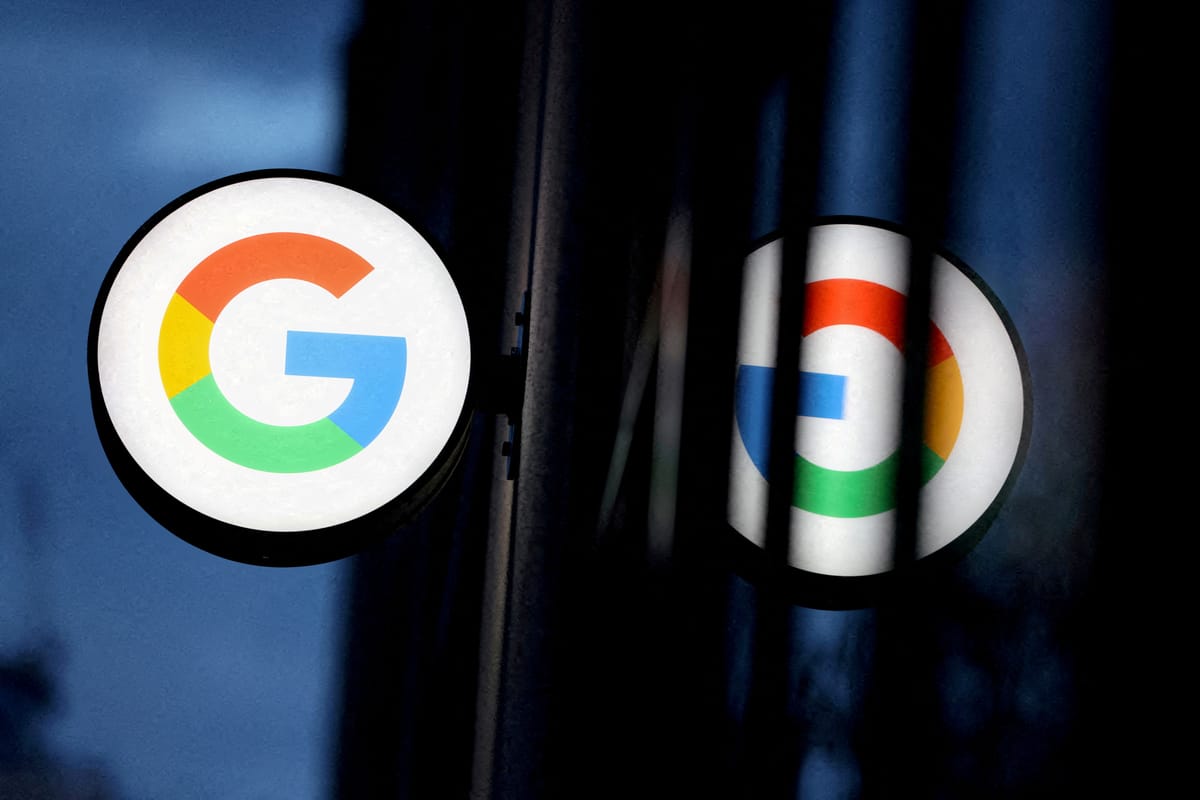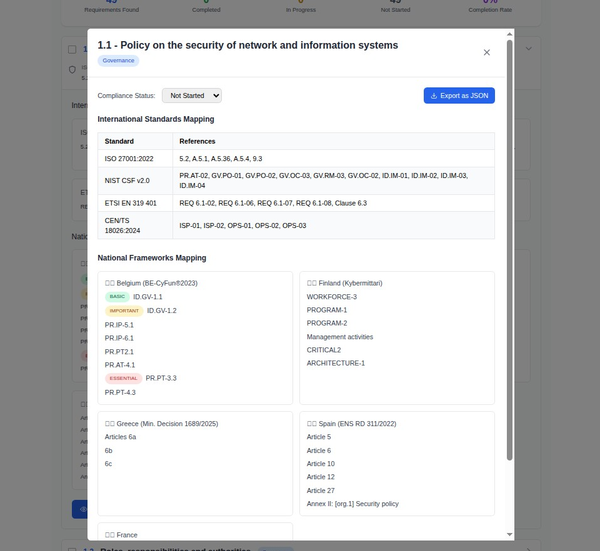EU Regulators Seek Feedback on Google's Compliance Proposals: A Pivotal Moment for Tech Regulation

In a significant development in the ongoing saga of tech regulation in Europe, EU antitrust regulators are set to seek feedback on Google's latest compliance proposals. This move, scheduled for next week, could determine whether the tech giant faces formal charges for alleged anti-competitive practices. The European Commission's decision to solicit input from industry stakeholders marks a crucial juncture in its efforts to enforce the Digital Markets Act (DMA) and level the playing field in the digital economy.

Background: The DMA and Google's Challenges
The Digital Markets Act, which came into effect in 2023, aims to curb the market power of large tech companies designated as "gatekeepers." Google, along with other tech giants like Apple, Amazon, and Meta, falls under this category. The DMA imposes strict rules to prevent these companies from favoring their own services over those of competitors.
In March 2024, the European Commission launched an investigation into Google, focusing on whether the company gives preferential treatment to its vertical search engines - Google Shopping, Google Flights, and Google Hotels - over rival services. This probe was initiated following complaints from comparison shopping sites and other competitors who alleged that Google had not fully complied with the DMA's requirements.

Google's Proposed Solutions
In response to these concerns, Google has put forward several proposals aimed at addressing the Commission's concerns:
- Separate Box for Rivals: Google has suggested creating a distinct section below its own product listing ads in search results, specifically for competitors' offerings.
- Dual Box Approach: Another proposal involves creating two adjacent boxes in search results - one for intermediaries and another for direct suppliers like airlines, hotels, and retailers.
These proposals represent Google's attempt to demonstrate compliance with the DMA while maintaining its core business model. The company states that it has been engaging with the European Commission and industry stakeholders over the past year, trying to balance a wide spectrum of views across the ecosystem.

The Feedback Process
The European Commission plans to hold workshops from September 9 to 11 to gather feedback on Google's proposals. These sessions will involve various third parties, including intermediaries and direct sellers. Notably, Google itself has not been invited to participate in these workshops.
This feedback process is crucial for several reasons:
- It allows affected parties to voice their concerns and opinions directly to regulators.
- It provides the Commission with a broader perspective on the potential impact of Google's proposals.
- The input received could significantly influence the Commission's decision on whether to proceed with formal charges against Google.

Potential Consequences
The stakes are high for Google. If the feedback reveals that the company's proposals are insufficient to address competition concerns, the European Commission could file formal charges by the end of September. Such charges could potentially lead to hefty fines - up to 10% of Google's global annual revenue.
Moreover, beyond financial penalties, an adverse decision could force Google to make more substantial changes to its business practices in Europe, potentially affecting its market dominance and revenue streams.
Broader Implications for Tech Regulation
This case is being closely watched not just in Europe but globally. It represents a critical test of the EU's ability to enforce the DMA and effectively regulate large tech companies. The outcome could set precedents for how other jurisdictions approach similar issues of competition in the digital marketplace.
Furthermore, the case highlights the ongoing tension between fostering innovation and ensuring fair competition in the tech sector. Regulators must balance the need to prevent anti-competitive behavior with the risk of stifling technological advancements that benefit consumers.
Industry Reactions
Various industry groups, particularly those representing airlines, hotels, and retailers, have expressed concerns about Google's compliance efforts thus far. In May, these groups stated that Google's initial attempts to comply with the DMA had been detrimental to their businesses, forcing them to rely more heavily on intermediaries and potentially losing direct customer traffic.
These stakeholders argue that the current focus on competition between Google's services and large intermediaries doesn't adequately address the needs of direct service providers. Their input during the upcoming feedback process will be crucial in shaping the Commission's understanding of the market dynamics at play.
What specific changes has Google proposed to address competition concerns
Google has proposed several changes to address competition concerns and comply with the EU's Digital Markets Act (DMA):
- Creating a separate box for rivals below Google's own product listing ads box in search results, specifically to address criticism from comparison shopping sites.
- Offering to create two different boxes next to each other in search results:
- One box for intermediaries
- Another box for direct suppliers like airlines, hotels, and retailers
- Implementing over 20 product changes to search results, including:
- Introducing dedicated units and "chips" to help users find comparison sites for flights, hotels, and shopping
- Removing some features that help consumers find businesses directly, like the Google Flights unit
- Showing additional choice screens on Android phones during device setup to allow users to easily switch their search engine or browser. These choice screens will also be shown on Chrome for desktop and iOS devices.
- Asking for additional user consent to link data across Google services for personalization purposes.
- Providing advertisers and publishers in the EEA with some additional data, while protecting user privacy and commercially sensitive information.
- Launching a Data Portability API for developers in the EEA to allow users to move their data to third-party apps or services.
- Making changes to allow third-party apps and app stores on Android devices.
These proposals aim to address concerns about Google favoring its own vertical search engines and discriminating against third-party services. The European Commission will be seeking feedback on these proposals from various stakeholders to determine if they adequately address competition concerns.
What specific areas of Google's business practices are being targeted by the EU
the EU is targeting several specific areas of Google's business practices:
- Self-preferencing in search results: The European Commission is investigating whether Google gives preferential treatment to its own vertical search engines (Google Shopping, Google Flights, and Google Hotels) over competing services in search results.
- Discrimination against third-party services: The EU is examining if Google discriminates against third-party services in Google Search results.
- App store practices: The Commission is investigating whether Google's app store practices comply with Digital Markets Act (DMA) rules, particularly regarding allowing app developers to guide users to offers outside their app stores without fees.
- Advertising practices: The EU is looking into Google's advertising model and user data practices to ensure they create a more level playing field for competitors.
- Access to data and algorithms: Google has offered to grant competitors better access to advertising data and search algorithms, which the EU will scrutinize.
- Compliance with Article 6.5 of the DMA: This article deals with self-preferencing, and the EU is holding workshops to gather feedback on Google's compliance with this specific provision.
- Overall compliance with the Digital Markets Act: The EU is assessing whether Google's proposed changes and current practices align with the broader goals of the DMA to make digital markets fairer and more contestable.
If Google fails to address these concerns satisfactorily, it could face formal charges by the end of September and potentially significant fines of up to 10% of its global annual revenue.
How does Google's current SERP design compare to DMA compliance
here are the key points regarding how Google's current SERP design compares to Digital Markets Act (DMA) compliance:
- Google has made some changes to its search results pages in Europe in an attempt to comply with the DMA, which prohibits self-preferencing of its own services.
- However, analysis by companies like Yelp suggests that Google's new European SERPs may actually exacerbate self-preferencing rather than reduce it:
- Yelp found that under the new SERPs, Google retains approximately 73% of traffic, compared to 55% under the pre-DMA SERPs.
- This suggests Google is keeping even more traffic within its own properties.
- Some key changes Google has implemented include:
- Introducing dedicated units and "chips" to help users find comparison sites for flights, hotels, and shopping
- Removing some features that help consumers find businesses directly, like the Google Flights unit
- Creating separate boxes for intermediaries and direct suppliers in search results
- Critics argue these changes do not go far enough to comply with the DMA's prohibition on self-preferencing. They suggest Google should:
- Use a merit-based methodology to match local businesses with content providers
- Link to the highest-ranking third-party provider's page in results, rather than prioritizing Google's own content
- The "Comparison Sites" SERP feature introduced by Google is seen by some as not fully addressing the issue, as it only shows up in about 24% of queries.
- There are concerns that Google's changes may actually make it more difficult for hotels and OTAs to get their organic web listings ranked in the top three in EU results.
- The European Commission is still in the process of evaluating whether Google's changes fully comply with the DMA. They are seeking feedback from industry stakeholders on Google's proposals.
In summary, while Google has made some changes to its SERP design in Europe, there is significant debate about whether these changes truly comply with the DMA's requirements to prevent self-preferencing. Many critics argue that the current design still favors Google's own services and does not go far enough in providing equal opportunities for competitors.
Conclusion: A Watershed Moment for Digital Regulation
As the European Commission prepares to gather feedback on Google's proposals, the tech industry stands at a crossroads. The decisions made in the coming weeks could have far-reaching implications for how digital markets operate in Europe and beyond.
For Google, this represents a critical opportunity to demonstrate its commitment to fair competition and regulatory compliance. For competitors and industry stakeholders, it's a chance to influence the future landscape of digital commerce. And for regulators, it's a test of their ability to effectively implement and enforce landmark legislation like the DMA.
As this process unfolds, all eyes will be on Brussels, watching to see how this pivotal chapter in the ongoing story of tech regulation will conclude. The outcome could well shape the digital economy for years to come.
Citations:
[1] https://bytes.employehub.com/eu-regulators-to-seek-feedback-on-googles-compliance-proposals-to-avert-charges/
[2] https://news.abplive.com/technology/google-eu-dma-lawsuit-regulators-seek-feedback-on-google-compliance-proposal-next-week-1715270
[3] https://www.marketscreener.com/quote/stock/ALPHABET-INC-24203373/news/EU-regulators-to-seek-feedback-on-Google-s-compliance-proposals-to-avert-charges-47804165/
[4] https://timesofindia.indiatimes.com/world/europe/eu-regulators-to-seek-feedback-on-googles-compliance-proposals-to-avert-charges/articleshow/113071908.cms
[5] https://www.silicon.co.uk/e-regulation/eu-google-dma-views-578292
[6] https://economictimes.indiatimes.com/tech/technology/eu-regulators-to-seek-feedback-on-googles-compliance-proposals-to-avert-charges/articleshow/113088233.cms






